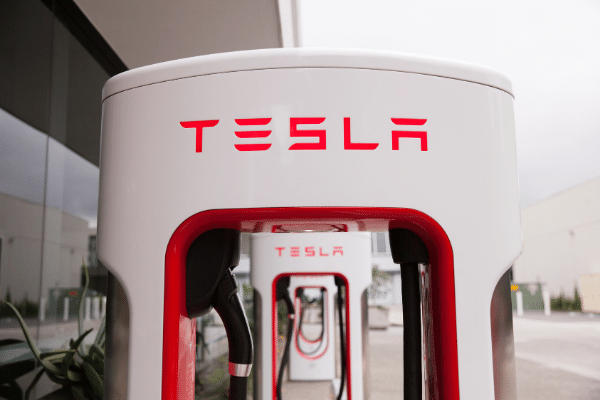
-
Tesla’s (-3.78%) sharp correction takes down a bunch of other stock ETFs that depend on the electric vehicle manufacturer for the bulk of their gains
-
Business model of the electric vehicle maker bears closer inspection and requires a more critical analysis of its cost relative to its capabilities
Whether it’s the rise in bond yields or just a realization of overvaluation, Tesla’s tumble is not just taking a toll on its shareholders, who have lost about US$300 billion in market cap this year alone, but also general speculative sentiment.
Ironically, Bitcoin, whose price has held up relatively well and which Tesla purchased some US$1.5 billion worth, is perhaps the one bright spark on Tesla’s balance sheet – Bitcoin has come down from its most recent high, but is still above the price Tesla purchased it at.
Tesla is now down by almost a third since its high in January, taking down anything associated with it, most notably Cathie Wood’s high profile Ark Innovation ETF (-1.15%).
By Friday, every one of the 54 U.S.-based ETFs that had assets under management exceeding US$1 billion and over 1% invested in Tesla were dragged down by the plunge in Tesla’s stock price.
The shock rippling through markets is a testimony to just how quickly things can turn pear-shaped for crowded trades in more speculative segments of the market, and while Tesla is no GameStop (+4.07%), the lessons to be learned here are similar.
While high-flying growth stocks like Tesla are great to own when they’re soaring, when investors head for the door, these stocks often fall much faster and further than they rose to begin with. Yet should this really come as such a surprise?
Last year Tesla rolled out just over half a million vehicles and had a market cap of US$677.4 billion – compare that with Toyota Motor Corporation (+0.59%) which had a market cap less than a third of Tesla’s, at US$209.2 billion, but sold 2.1 million vehicles, or about 4 times the number of Teslas.
Sure, one could argue that Tesla should be valued higher because it’s a “growth” company, and represents the future of mobility. But as sexy as that marketing tagline is, Tesla’s business model is not very different from that of any other automaker – it has the same restrictions and limitations on its assembly line, the same challenges of any other vehicle manufacturer in terms of managing supply lines and raw materials and its margins aren’t significantly higher than that of competitors.
Consider that Tesla’s gross margins were at 21% in 2019 versus Toyota’s 17% and it becomes clear that investors in Tesla are seeing something that the books aren’t necessarily revealing.



